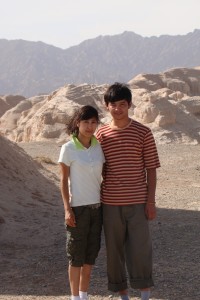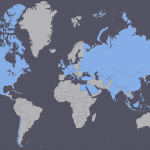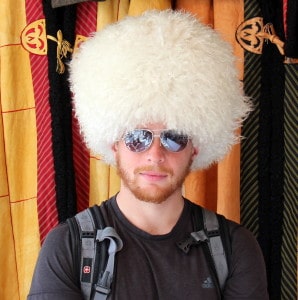
“The Chinese are all pigs. This is why we do not let them into our mosques.” Aden was mad, and understandably so. Whether justified or not, the Uigher people felt like the oppressed minority, and the riots in the capital city of Urumqi could only serve to strengthen such sentiments.
I had arrived in Kuqa, Aden’s town, in my effort to flee the rioting in Urumqi. While all of Xinjiang Province was angry, only a few cities were actually in the midst of Chinese v. Uigher ethnic rioting. Not sure how an outsider might be received in all that by either the Chinese police or the rioting minorities, I made the decision to steer clear. But even as far away as Kuqa, the effects could be felt. The Chinese restaurant cook told me the Uighers riot because they drink too much booze and smoke too much hash. The Uigher shopkeeper told me I couldn’t make an international phone call or use the internet because the Chinese government was afraid of what his people could do if they were able to organize. But what was true? What was not? It’s hard to know when everything one hears is unbalanced. One-sided. It’s hard to know, with issues. That’s what so powerful about people. Individuals.
That’s what Aden was. A real person. A single, deeper voice. A look into a mindset, and not just an angry retort. We met because he was a cab driver, and I wanted a ride around town for the day. After trying to hail three different taxis, I finally found one in him who spoke Mandarin. Aden was delighted to have a foreign passenger. We bonded because my day started going south in a hurry. In addition to blocking Internet access and international phone calls, the government had also apparently blocked access to foreign money. My bankcard wouldn’t work and the bank simply refused to change US dollars. As I stressed out over my problems, this stranger whose own world was in upheaval was the one who offered moral support. All the while, he spoke of his life, his culture, and his experiences. Of the difficulties of being a Uigher under China’s administration. But also of the development that administration had brought to Xinjiang. Neither of us remarked on the irony of the common language we used being another of China’s contributions.
All the sights in town visited, and knowing that I had no money to book a hotel, Aden invited me into his home. There wasn’t enough time before my train out of town to accept, so we drove around for a while until he dropped me off at the station. Before we parted, he gave me the rest of his pack of smokes as a gesture of friendship, because he knew I couldn’t afford any more until I got somewhere that would conduct foreign banking.
As my family was freaking out that I was in a riot-torn province utterly cut off from the world, I was having a daylong conversation with Aden about his life, the reasons the Uighers couldn’t get along with the Chinese, and what his home would be like in a (his) perfect world. I had come to Kuqa for the sights, to get away from the tensions in the capital. I left having barely noticed the city around me, completely caught up in this young taxi driver and the powers that controlled his life and his people. My intentions confounded but my understanding broadened, I got on the next train out of Xinjiang Province.




